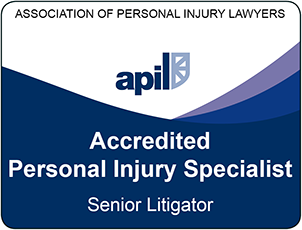What is the Bolam Test?
Bolam v Friern Hospital Management Committee [1957] 1 WLR 582 is a case that lays down the typical rule for assessing the appropriate standard of reasonable care in negligence cases involving skilled professionals (e.g. doctors). This is commonly referred to as the Bolam test. Where the defendant has represented him or herself as having more than average skills and abilities, this test expects standards which must be in accordance with a responsible body of opinion, even if others differ in opinion. In other words, the Bolam test states that “If a doctor reaches the standard of a responsible body of medical opinion, he is not negligent”.
What happened in the Bolam case?
Mr Bolam was a voluntary patient at a mental health institution run by the Friern Hospital Management Committee. He agreed to undergo electro-convulsive therapy. He was not given any muscle relaxant, and his body was not restrained during the procedure. He flailed about violently before the procedure was stopped. As a result, he suffered some serious injuries, including fractures of the acetabula. He sued the Committee for compensation. He argued they were negligent for (1) not issuing relaxants (2) not restraining him (3) not warning him about the risks involved.
What did the Court decide?
The Judge noted that expert witnesses had confirmed that much medical opinion was opposed to the use of relaxant drugs and that manual restraints could sometimes increase the risk of fracture. In addition, it was the common practice of the profession to not warn patients of the risk of treatment (when it is small) unless they are asked. He held that what was common practice in a particular profession was highly relevant to the standard of care required. A person falls below the appropriate standard, and is negligent, if he fails to do what a reasonable person would in the circumstances.
When a person professes to have professional skills, as doctors do, the standard of care must be higher. “It is just a question of expression,” said the Judge.
In this case, the decision was in favour of the defendant hospital. Given the general medical opinions about what was acceptable electro-shock practice, they had not been negligent in the way they carried out the treatment.
How can our team help you?
Our experienced team of Solicitors have successfully pursued many Clinical Negligence cases on behalf of our clients.
Most cases are pursued on a “No Win, No Fee” basis and our team is happy to discuss your concerns at a free initial interview.
To discuss a potential claim, contact us on freephone 0800 011 6666 or via email at legal@timms-law.com.
What Our Clients Say














